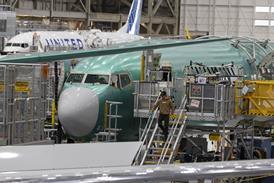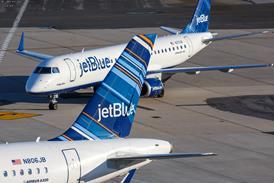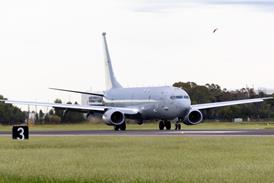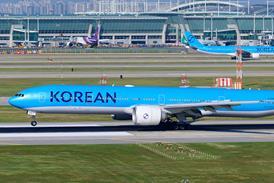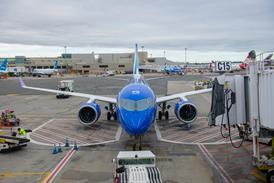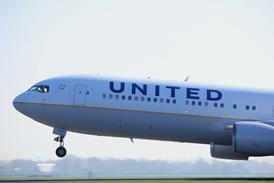The Trump administration has disapproved more than a dozen current and planned routes operated by Mexican carriers including Aeromexico, VivaAerobus and Volaris, escalating a dispute over airport slot restrictions and “open skies” obligations.
The US Department of Transportation (DOT) said in a 28 October filing that it is “disapproving portions of their schedules” in response to the Mexican government’s decision to “unilaterally” limit air traffic volumes by US carriers to Mexico City’s Benito Juarez International airport.
The order affects 13 routes from Mexico to the USA, including a proposed Mexico City-Newark route to be operated by ultra-low-cost carrier (ULCC) Volaris and routes to be operated by fellow ULCC VivaAerobus from Santa Lucia to Austin, New York, Chicago, Dallas/Fort Worth, Denver, Houston, Los Angeles, Miami and Orlando.
Also affected are Aeromexico Connect flights from Santa Lucia to Houston and McCallen, Texas.
The DOT goes further, saying it disapproves “all prospective schedules that may be subsequently filed by… foreign air carriers of Mexico… for any and all new proposed services between Santa Lucia or Mexico City, on the one hand, and any US point, on the other hand”.
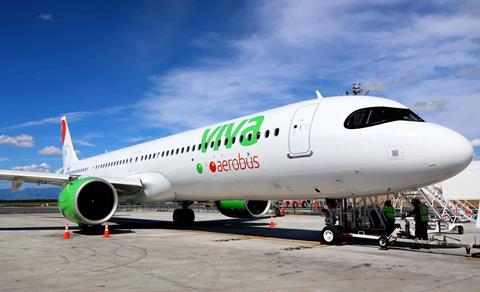
Transportation Secretary Sean Duffy asserted on social media that the previous US administration did not respond appropriately to Mexico’s air traffic volume restrictions, pointing specifically at the former president and transportation secretary.
”Joe Biden and Pete Buttigieg were too weak to stand up to Mexico when they walked all over our bilateral aviation agreement,” Duffy says. ”These deals are binding, and like our trade agreements, POTUS is going to enforce them.”
The move comes after the US DOT threatened in July to implement broad restrictions on Mexican carriers operating within the USA, with the joint venture (JV) deal between Delta Air Lines and Aeromexico also falling in the Trump administration’s crosshairs.
Since the beginning of Trump’s second term, DOT has decried what it characterises as violations of the US-Mexico air transport agreement and anti-competitive behaviour that favours Mexican airlines.
The Mexican government has “taken actions that have impaired the ability of US carriers to fully exercise their rights, thereby denying US air carriers a fair and equal opportunity to compete”, the DOT says in its most recent filing.
Specifically, the DOT points to a February 2023 decision to prohibit all-cargo operations at Benito Juarez, forcing some US carriers to move operations to Felipe Angeles International airport in Santa Lucia. It alleges that the “sudden prohibition” of all-cargo flights at Benito Juarez is “inconsistent with Mexico’s bilateral obligations ” under a 2015 air transport agreement between the countries.
The Trump administration’s actions have included tentatively reversing Delta and Aeromexico’s JV, a partnership which has been active for about eight years. The DOT previously noted that the Delta-Aeromexico JV was set to expire in 2020 but has been extended, pending review.
Delta and Aeromexico have since sued to maintain their JV, with Delta asserting that terminating its partnership with Aeromexico ”would cause significant harm to consumers travelling between the US and Mexico, as well as US jobs, communities and transborder competition”.
The DOT insists that it does not intend for its latest move to escalate the disagreement between the USA and Mexico. Its goal is “rather an improved environment wherein all air carriers of both parties will be able to exercise fully their bilateral rights”.
“The department is prepared to reconsider its action to disapprove the above schedules should the [Mexican government] return to full compliance with its obligations,” the DOT says.
During recent third-quarter earnings calls, Volaris and VivaAerobus had described rebounding air traffic from Mexico to the USA, a critical market for the ULCCs specialising in visiting-friends-and-relatives flights, following an early-year dip in demand possibly related to Donald Trump’s immigration rhetoric and fears of deteriorating economic conditions.



